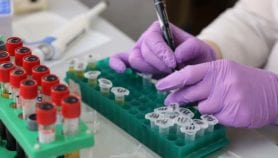Send to a friend
The details you provide on this page will not be used to send unsolicited email, and will not be sold to a 3rd party. See privacy policy.
Once, universities saw patenting as militating against the interests of disinterested science and public health. Now a very different ethos prevails. Amid a heated debate over whether patents promote true innovation, universities are seeking revenue and courting commercialisation by taking out more patents than ever before.
In this article, Amy Kapczynski, E. Tyler Crone and Michael Merson of the Center for Interdisciplinary Research on AIDS at Yale University in New Haven, United States, say that when the patents involve life-saving drugs, this development becomes controversial. Patents and exclusive licences have been shown to boost prices and so prevent access to the drugs for many of the people who need them most, especially in poorer countries.
The way out of this ethical tangle could lie with access-friendly policies for intellectual property. A group of experts at Yale recently concluded that universities could help poorer countries by either refusing to patent drugs there, or offering non-exclusive licences. There is, say the authors, little profit at stake here for universities anyway — but everything to gain for the global common good.
Reference: Science, 301, 1629 (2003)













